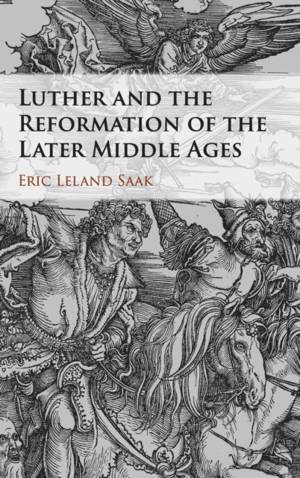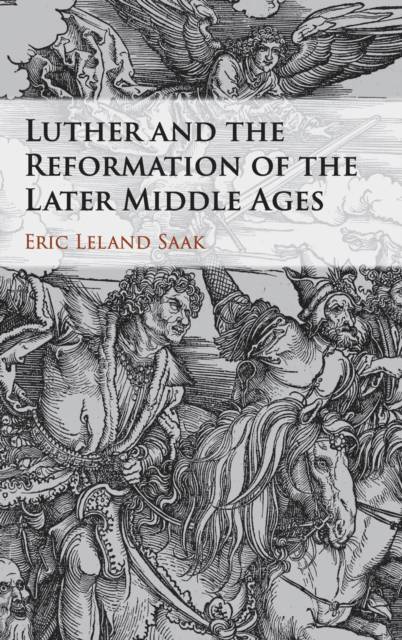
- Afhalen na 1 uur in een winkel met voorraad
- Gratis thuislevering in België vanaf € 30
- Ruim aanbod met 7 miljoen producten
- Afhalen na 1 uur in een winkel met voorraad
- Gratis thuislevering in België vanaf € 30
- Ruim aanbod met 7 miljoen producten
Zoeken
€ 217,95
+ 435 punten
Omschrijving
In 1517, Martin Luther posted his 95 Theses, an act often linked with the start of the Reformation. In this work, Eric Leland Saak argues that the 95 Theses do not signal Luther's break from Roman Catholicism. An obedient Observant Augustinian Hermit, Luther's self-understanding from 1505 until at least 1520 was as Brother Martin Luther, Augustinian, not Reformer, and he continued to wear his habit until October 1524. Saak demonstrates that Luther's provocative act represented the culmination of the late medieval Reformation. It was only the failure of this earlier Reformation that served as a catalyst for the onset of the sixteenth-century Protestant Reformation. Luther's true Reformation discovery had little to do with justification by faith, or with his 95 Theses. Yet his discoveries in February of 1520 were to change everything.
Specificaties
Betrokkenen
- Auteur(s):
- Uitgeverij:
Inhoud
- Aantal bladzijden:
- 410
- Taal:
- Engels
Eigenschappen
- Productcode (EAN):
- 9781107187221
- Verschijningsdatum:
- 19/04/2017
- Uitvoering:
- Hardcover
- Formaat:
- Genaaid
- Afmetingen:
- 160 mm x 239 mm
- Gewicht:
- 707 g

Alleen bij Standaard Boekhandel
+ 435 punten op je klantenkaart van Standaard Boekhandel
Beoordelingen
We publiceren alleen reviews die voldoen aan de voorwaarden voor reviews. Bekijk onze voorwaarden voor reviews.








